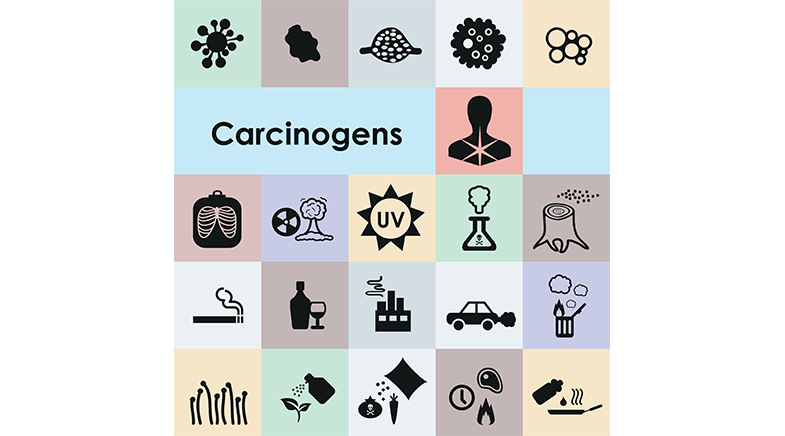Spotting carcinogens, AI-style
-
- from Shaastra :: vol 01 issue 05 :: Sep - Oct 2022

Could your shampoo be carcinogenic? What about your barbecued food? And talcum powder?
It's not easy ascertaining what is cancer-causing and what is not. But now researchers at the Indraprastha Institute of Information Technology Delhi (IIIT-D) have developed an Artificial Intelligence (AI)-driven method to detect such toxic substances.
With carcinogens triggering most cancers, it is important to know what compound — chemical or otherwise — may cause cancer. So far, the methods used to identify a substance's carcinogenic property have been cumbersome and time-consuming, and have often involved animal tests.
But a team led by computational biologist Gaurav Ahuja and Debarka Sengupta, the head of the Infosys Centre for Artificial Intelligence at IIIT-D, has made this relatively easy with its machine learning (ML) technique called Metabokiller. The scientists reported their work in a recent issue of Nature Chemical Biology.
Carcinogens cause 95% of cancers. A range of items — from industrial wastes, cheap plastics to cigarettes, preserved foods and even medicines — may contain cancer-causing compounds.
Metabokiller can scan any given molecule and then estimate the probability of carcinogenicity. The program predicts carcinogenicity in any molecule based on six biochemical processes that are seen as signs of cancer.
The significant challenges were collecting and curating data from scientific texts and then constructing a training set used for the model.
These processes are the ability of a substance to attract electrons, its potential to induce proliferation, oxidative stress, genomic instability, epigenome alterations, and stopping a natural mechanism that kills defective cells.
"As DNA is an electronegative substance, the attacking molecule must be positive; therefore, we searched for positive molecules," Ahuja, who set up IIIT-D's first molecular biology lab, said.
A typical cell destroys itself under stress, whereas a cancer cell is stress-resistant. The study scans the compounds that make a cell stress-resistant, which could be the carcinogen. Ahuja's model screens all the six possible paths for causing cancer and the molecules behind it.
The scientists also used the software to flag two previously untested substances as carcinogens. In experiments on human and yeast cells, the compounds triggered changes associated with malignancy.
"Our model not only catches the carcinogen but also explains the causes. Any company using this model can make corrections in synthesising their molecules," said Sengupta, whose AI expertise Ahuja tapped to develop the technique. Industries such as food and beverages, drugs, cosmetics, and childcare can use this model for scanning their molecules before using them in their products.
"This is a fantastic example of inter-disciplinary research, where machine learning collaborates with molecular biology for the benefit of humankind," Sengupta added.
The significant challenges were collecting and curating data from a large number of scientific texts and then constructing a training set used for the model to help find new carcinogens.
Have a
story idea?
Tell us.
Do you have a recent research paper or an idea for a science/technology-themed article that you'd like to tell us about?
GET IN TOUCH













